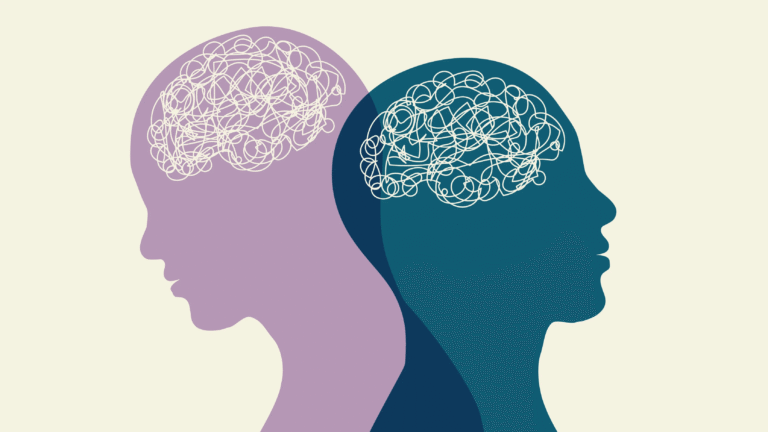The landscape of mental wellness is evolving rapidly, driven by technological advancements and a deeper understanding of mental health needs. This evolution has introduced a range of innovative tools and therapies, revolutionizing the way mental wellness is approached. With care becoming more accessible and personalized, there’s a growing sense of optimism for individuals seeking support in their mental health journey.
Understanding the latest trends and tools in mental wellness has never been more important. As technology offers new ways to manage and improve mental health, from wearable devices that track emotional states to apps designed for meditation and mindfulness, staying informed is key. These advancements not only promise enhanced daily living but also signify a broader move towards making mental health resources more available to everyone. Looking ahead to 2024, embracing these trends could be crucial for fostering a balanced and healthy mindset.
Section 1: Mindfulness and Meditation Apps
Integrative mental health approaches are reshaping the treatment landscape by combining traditional and alternative therapies. This holistic method acknowledges the complexity of mental wellness, offering personalized care that meets the unique needs of each individual. By blending conventional treatments like medication and psychotherapy with alternative practices such as meditation, yoga, and dietary modifications, integrative approaches aim to treat the whole person rather than just symptoms. This comprehensive strategy enhances the effectiveness of mental health care, providing a more rounded and fulfilling path to wellness.
Technology plays a pivotal role in these integrative approaches, tools that support and enhance traditional and alternative therapies alike. Digital platforms facilitate access to therapeutic resources, such as online counseling sessions, mental health apps, and virtual reality meditation environments. Wearable devices monitor physiological responses, helping users and their healthcare providers understand the impact of various treatments and lifestyle changes. Through these technological innovations, integrative mental health care becomes more accessible, efficient, and tailored to the individual, paving the way for a future where mental wellness is within everyone’s reach.
Section 2: The Advancement of tDCS Devices
Transcranial direct current stimulation (tDCS) represents a frontier in mental wellness technology. It’s a non-invasive method that uses a low electrical current to stimulate specific parts of the brain. This stimulation can enhance cognitive function, mood, and neurological connections. By targeting precise areas, tDCS devices offer benefits for a wide range of mental health conditions, including depression, anxiety, and ADHD. The simplicity and safety of tDCS make it an appealing option for those seeking alternative or supplementary treatments to traditional therapies.
One standout example in the tDCS space is the Flow headset. This device delivers tDCS to the brain via electrodes on the scalp, aiming to modulate neural activity and improve symptoms of depression. It operates by sending a constant, low electrical current to targeted areas of the brain, potentially altering neuronal function to provide therapeutic benefits. This exemplifies how technology is being harnessed to offer innovative, effective mental health solutions.
Section 3: Online Mental Health Communities
The digital era has witnessed the rise of online mental health communities, a testament to the power of connectivity in fostering support and understanding. These platforms range from forums and social media groups to dedicated apps, bringing together individuals from diverse backgrounds to share their experiences, challenges, and successes. The sense of belonging and mutual support found in these communities can be profoundly therapeutic, offering comfort and guidance to those who might otherwise feel isolated in their mental health journeys.
Accessibility is a key advantage of online mental health communities. They break down geographical and financial barriers to support, making mental health resources available to anyone with an internet connection. This inclusivity is crucial in areas where mental health services are scarce or stigmatized. Moreover, the anonymity of online platforms can encourage openness and honesty, allowing users to express themselves freely without fear of judgment. As these communities continue to grow, they stand as a vital component of a holistic approach to mental health care, complementing traditional therapies and treatments.
Section 4: Predictive Analytics in Mental Health
Predictive analytics is revolutionizing mental health care by harnessing data to foresee potential mental health issues before they escalate. This innovative approach utilizes algorithms and machine learning to analyze patterns in behavior, mood, and social interactions, often through data collected via apps and wearable devices. By identifying early warning signs of mental health conditions, predictive analytics enables proactive rather than reactive care. This shift towards anticipation can significantly impact the
effectiveness of treatment, potentially preventing conditions from worsening.
The real promise of predictive analytics lies in its potential for personalized mental health interventions. Tailored care plans can be developed based on an individual’s specific risk factors and behavioral patterns, offering a more targeted approach to prevention and treatment. Personalization not only enhances the efficacy of interventions but also improves patient engagement and outcomes. As technology advances, the integration of predictive analytics into mental health care holds the potential to transform how mental wellness is managed, making it more responsive to the needs of each unique individual.
Section 5: Holistic Health Tech
Holistic health tech is emerging as a vital ally in the quest for overall wellness, integrating sleep, nutrition, and exercise into a comprehensive approach to mental health. Technologies such as fitness trackers, smartwatches, and nutritional apps provide valuable insights into physical activity, dietary habits, and sleep patterns. These tools empower individuals to make informed decisions about their lifestyle, directly impacting their mental well-being. By monitoring these essential components, users can identify and modify behaviors that contribute to stress, anxiety, and mood fluctuations, fostering a balanced and healthy lifestyle.
The importance of a holistic approach to mental wellness cannot be overstated. Mental health is intricately connected to physical health, with each element influencing the other. For instance, poor sleep can exacerbate anxiety, while a nutritious diet may improve mood stability. Holistic health tech supports this interconnectedness, offering a way to address mental health from multiple angles. Embracing such technologies encourages a more comprehensive view of health, recognizing that mental wellness extends beyond the mind to encompass the body and spirit. As we continue to innovate, the potential for holistic health tech to enhance mental wellness is boundless, promising a future where technology and well-being are seamlessly integrated.
Conclusion
Staying informed about the latest trends and tools in mental wellness is essential for navigating the future of mental health care. With technology playing a pivotal role in shaping innovative solutions, the possibilities for enhancing mental wellness are both vast and promising. These advancements promise not only to make care more accessible and personalized but also to transform the overall approach to mental health.
As we continue to witness these developments, embracing and exploring these technologies becomes crucial. From wearable devices that monitor mental states to platforms that offer support through community, the landscape of mental health care is evolving rapidly. By engaging with these innovations, individuals have the opportunity to significantly impact their mental wellness journey, paving the way for a future where mental health is understood, accessible, and prioritized for all.













